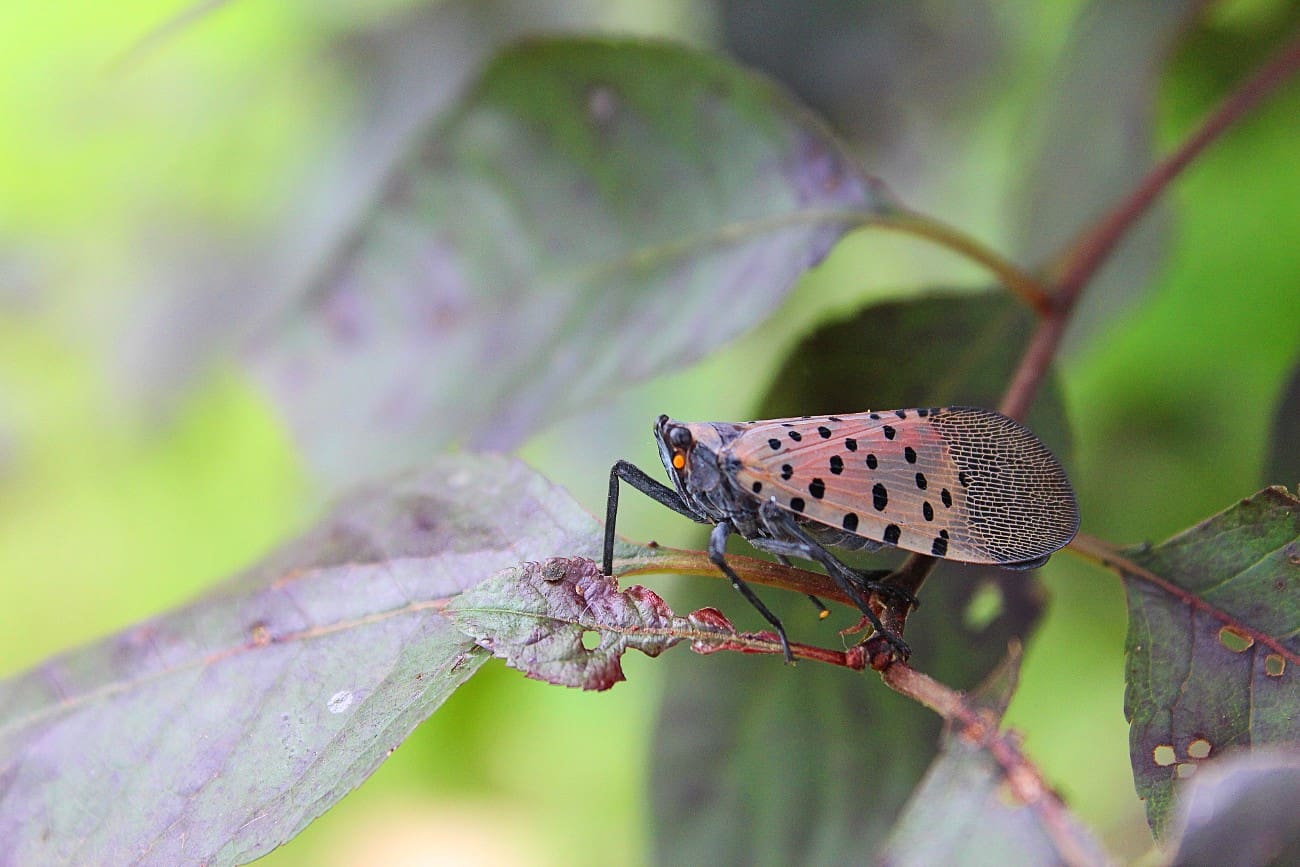When do spotted lanternflies lay eggs? Learn how you can do your part in eradicating these invasive insects.
Chances are, you or someone you know has squished a spotted lanternfly this past year. However, according to the experts, you probably didn’t make a massive dent in their numbers. That’s because the spotted lanternfly is very good at surviving. They’ve become more than a nuisance – they’re a serious threat to agriculture and hardwood forests.
Are you wondering, “When do spotted lanternflies lay eggs?” We’ve got the answers so you can do your part in ridding our environment of these pesky pests. Borst Landscape & Design offers premium pest control services to keep your property green and thriving. We have over 30 years of experience protecting your yard with our practical, eco-friendly treatments.
To learn more about our pest control services, call Borst at (201) 785-9400, or reach out online today!
What’s the big deal about the spotted lanternfly?
Spotted lanternflies were first seen in the United States in 2014 in Pennsylvania. Since then, they’ve spread to more than seven surrounding states, including New Jersey. So, what’s the big deal about such a little bug?
Spotted lanternflies are a severe invasive species that can cause devastating damage to the natural world, affecting our quality of life and outdoor enjoyment. They feed on most plant species, and they have a strong preference for economically important plants. They can have drastic effects on both ecosystems and agricultural businesses.
The New Jersey DOA has issued a quarantine for counties with confirmed sightings of these pesky little bugs. Answering the question, “when do spotted lanternflies lay eggs?” can make a big difference in stopping the spread of the lanternfly and protecting hardwood trees and our crops!
When do spotted lanternflies lay eggs?
Chances are you’ve seen pictures of the adult lanternfly. Adulthood may be the most crucial stage for controlling these invasive insects. It’s also the easiest time to identify them. However, it’s just as important – perhaps more so – to manage them in other stages of their life cycle, particularly the egg stage.
So, when do spotted lanternflies lay eggs? In autumn, lanternflies begin laying their eggs, generally continuing through December. While adults don’t survive the winter, their egg masses do. You can find white egg deposits covering tree bark and other surfaces from September to June.
Eggs are often laid on flat surfaces, including tree bark, rocks, lawn furniture, firewood, boats, RVs, and pallets. Research has shown that 85% of tree egg masses are ten feet or higher above the ground, so remember to look up!
Lanternflies can reproduce in vast numbers. Females lay 30-50 eggs at a time, coating them with a protective layer to survive the winter. Usually rectangular, they start as cream-colored before darkening into gray or light brown.
Here’s what you can do when you find an egg mass
The adult female lanternfly typically lays two egg masses, which doubles its survival chances. Recognizing and destroying these egg masses can make a big difference in controlling the spread of these invasive insects. Look up for clustered, white egg deposits!
So you’ve answered the question, “when do spotted lanternflies lay eggs?” You’ve also learned what an egg mass looks like growing on your property. What can you do next?
If you notice spotted lanternfly eggs, it’s essential to remove them and call your local DOA to report your findings. Here are a few tips for eliminating egg masses:
- Use a paint scraper or metal spatula to remove the egg mass from the surface
- Place the eggs into a plastic bag with hand sanitizer or alcohol
- Eggs should be scraped off and removed from structures before they hatch in spring to reduce the spread of these pests.
- Contact Borst for organic pest management!
If you have trees, shrubs, or other plants infested with spotted lanternflies, contact the experts at Borst to implement an integrated pest management program. Borst Landscape & Design is the Bergen County landscape service that protects you through premium organic pest management. Our environmentally-friendly treatments and specialized approach offer practical solutions to keep your yard safe and healthy.
For your free consultation, call Borst at (201) 785-9400 or fill out a contact form on our website.
Photo by Magi Kern

